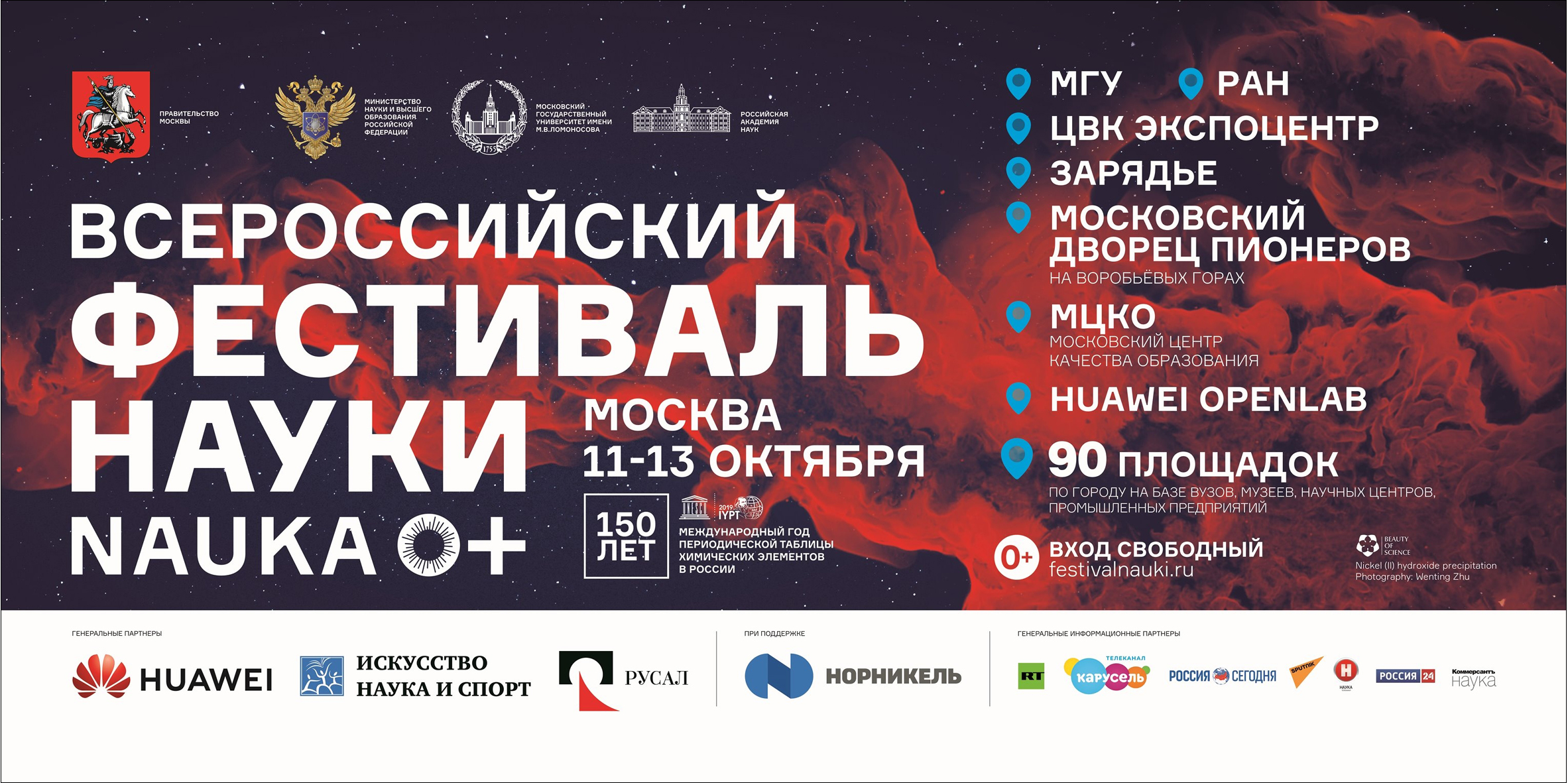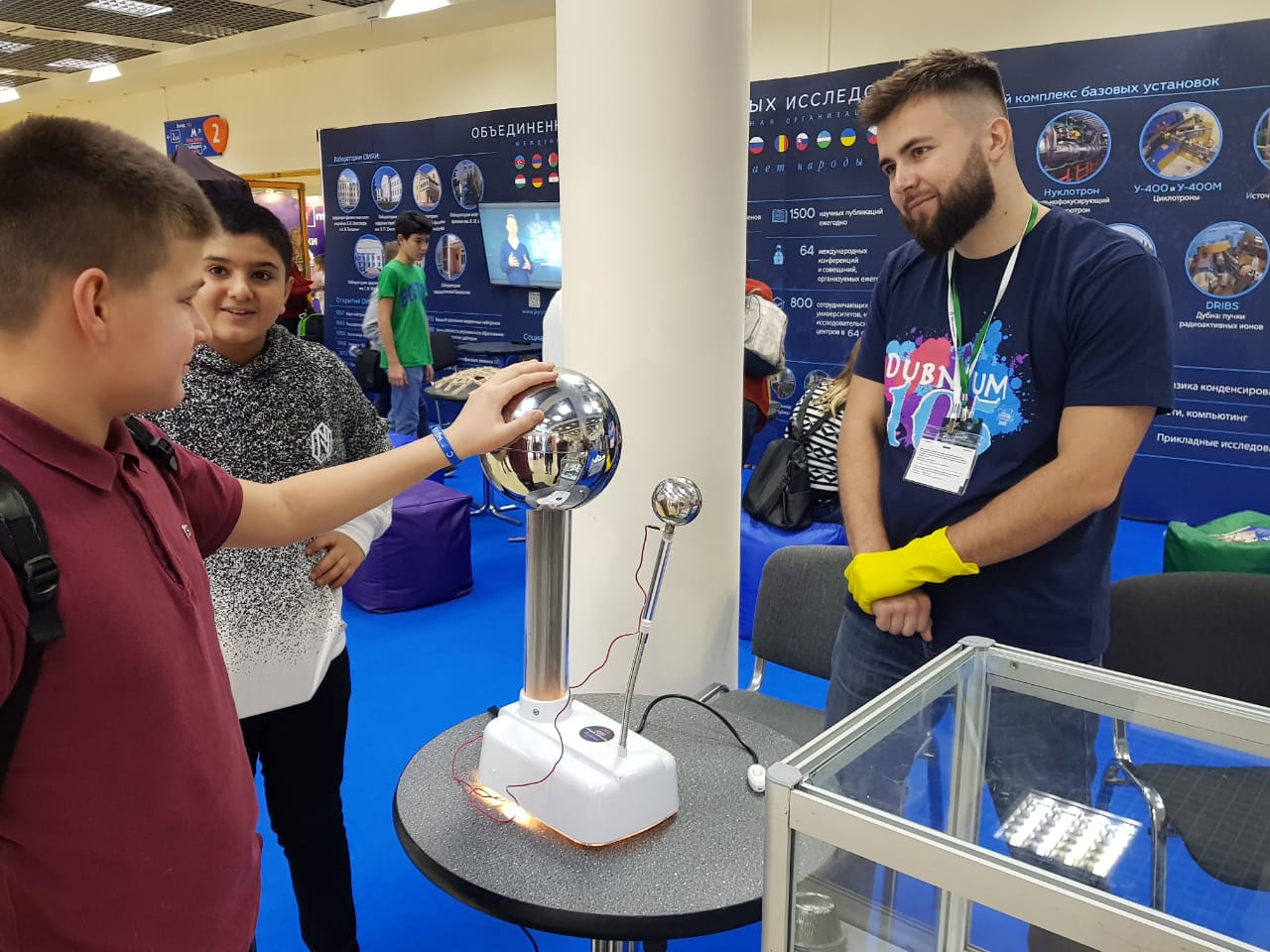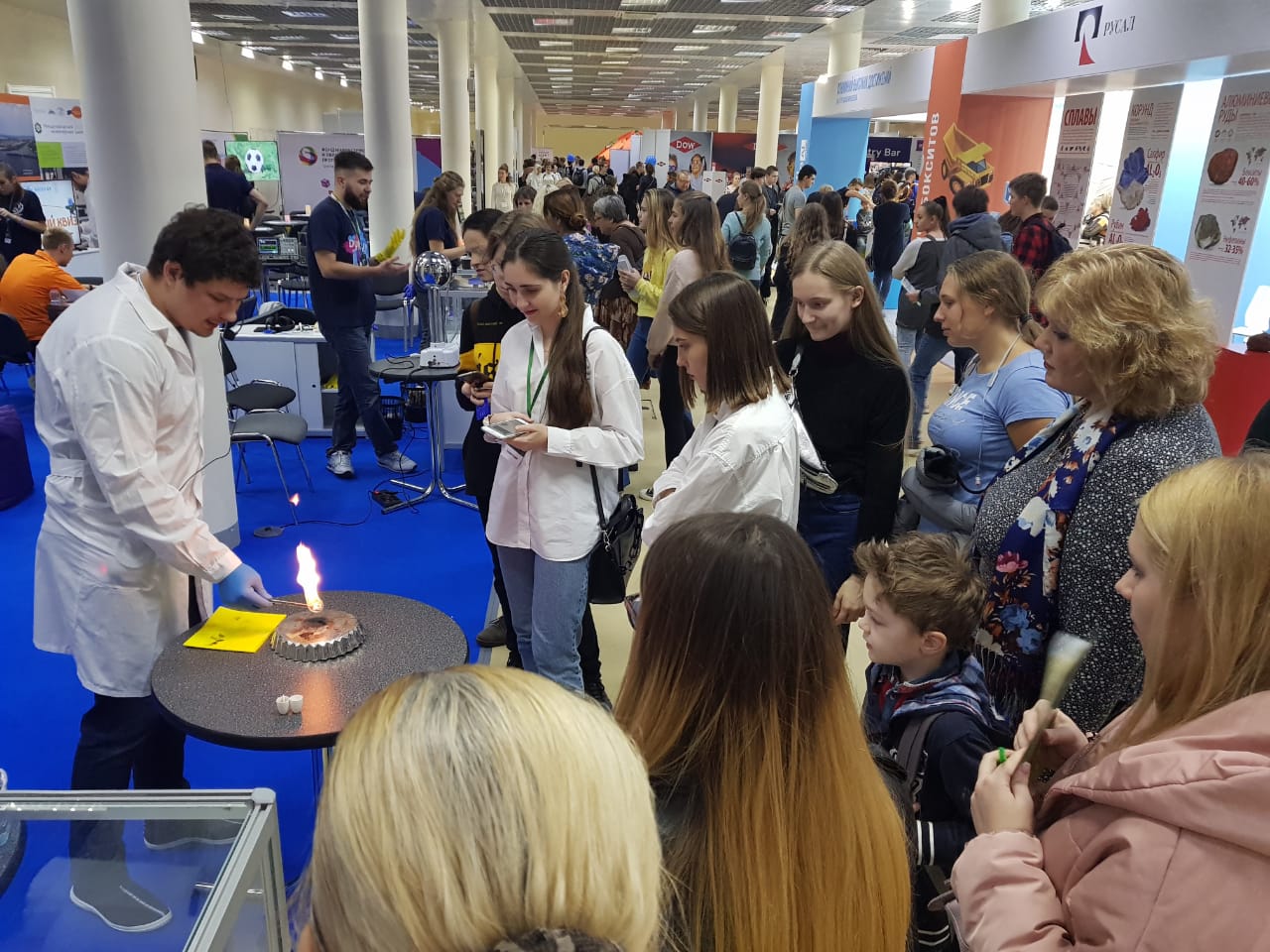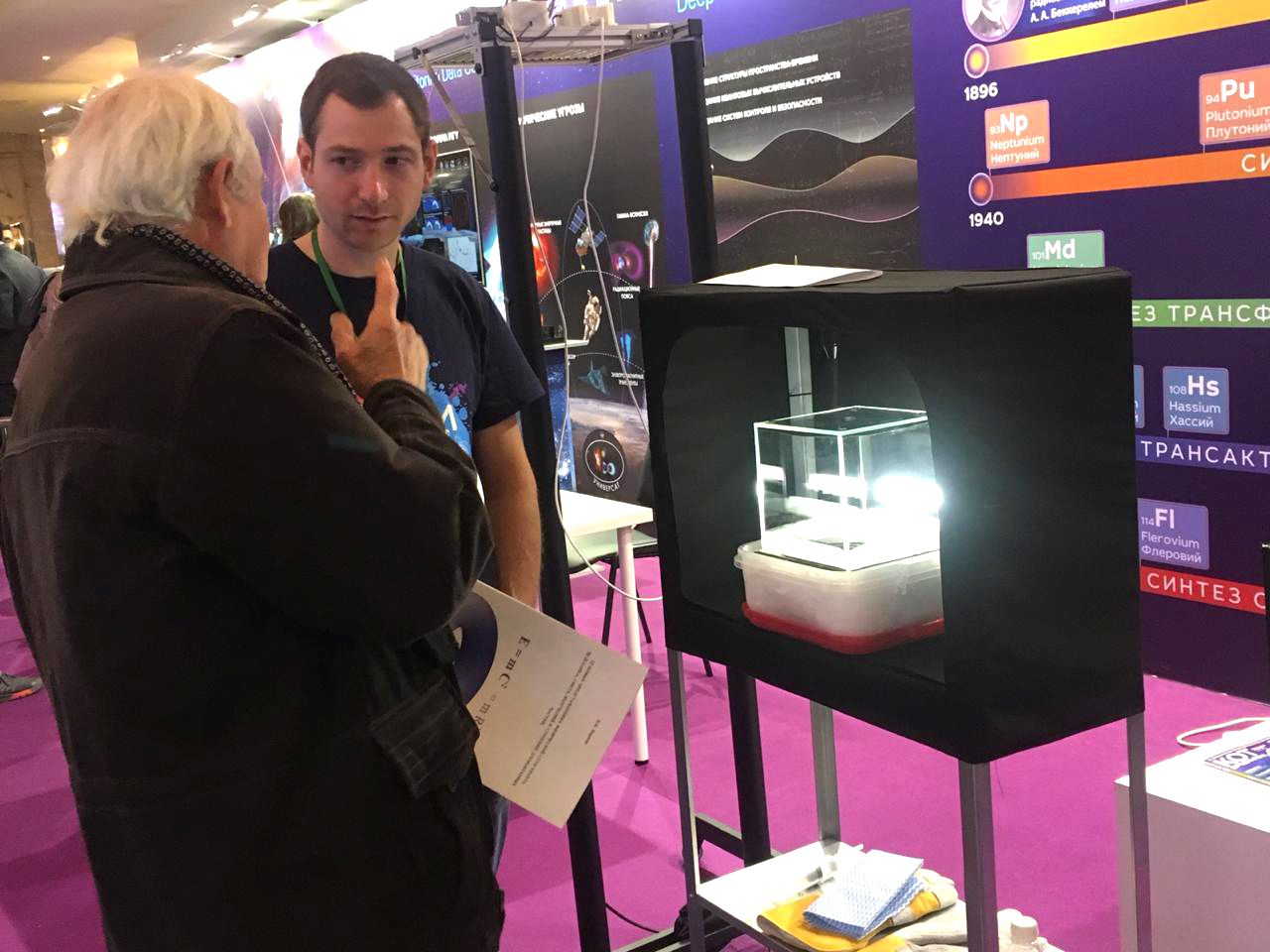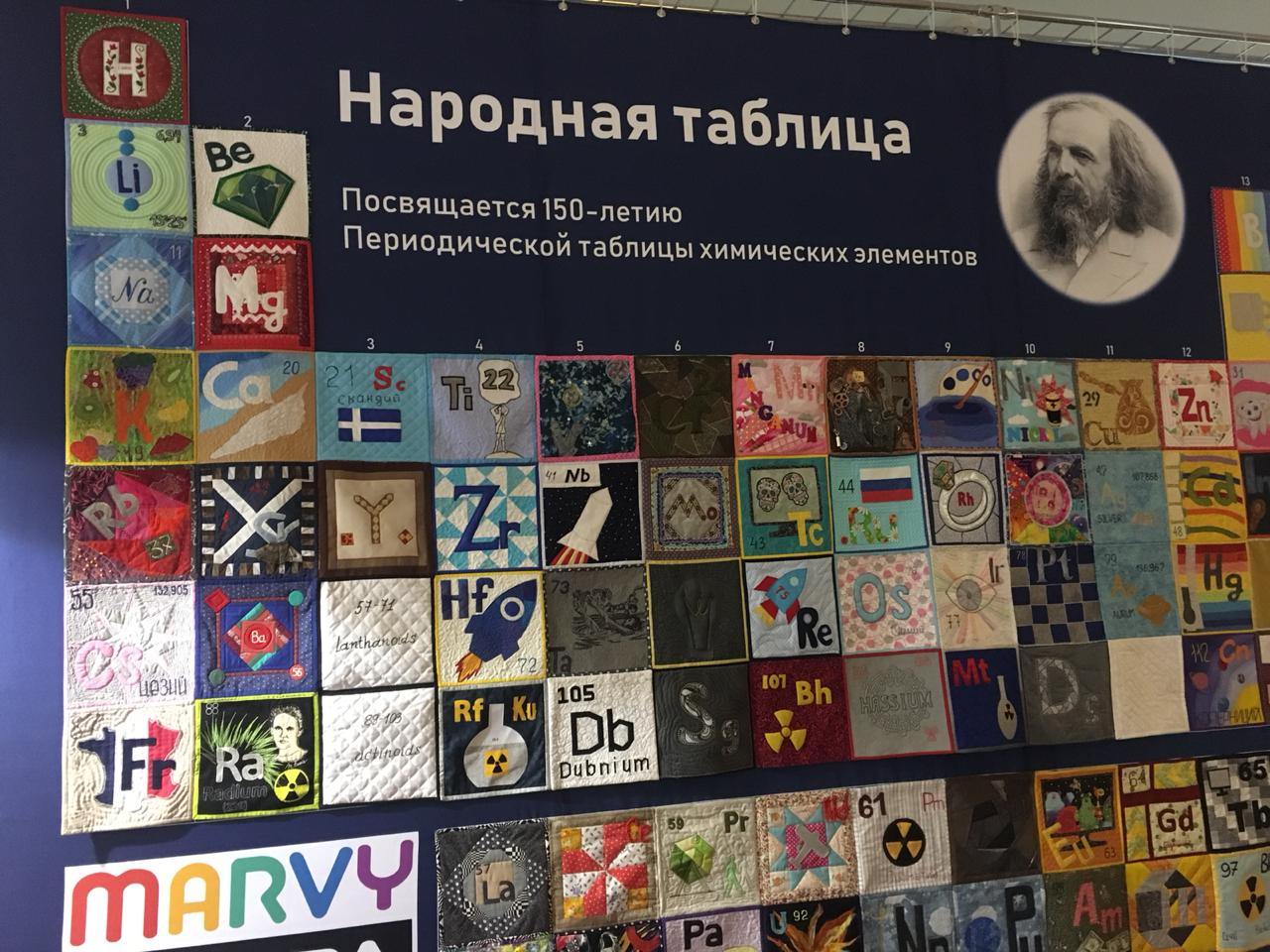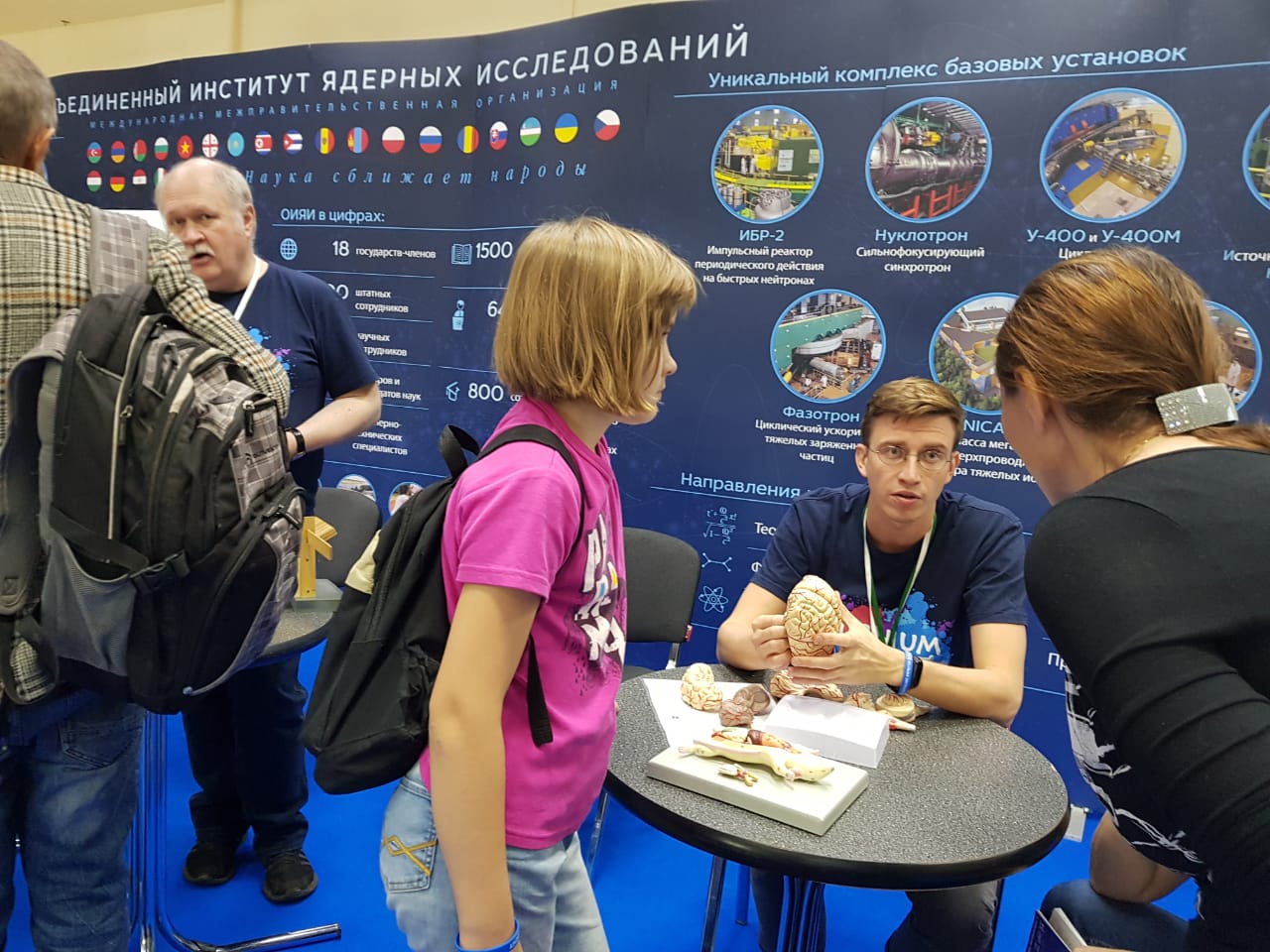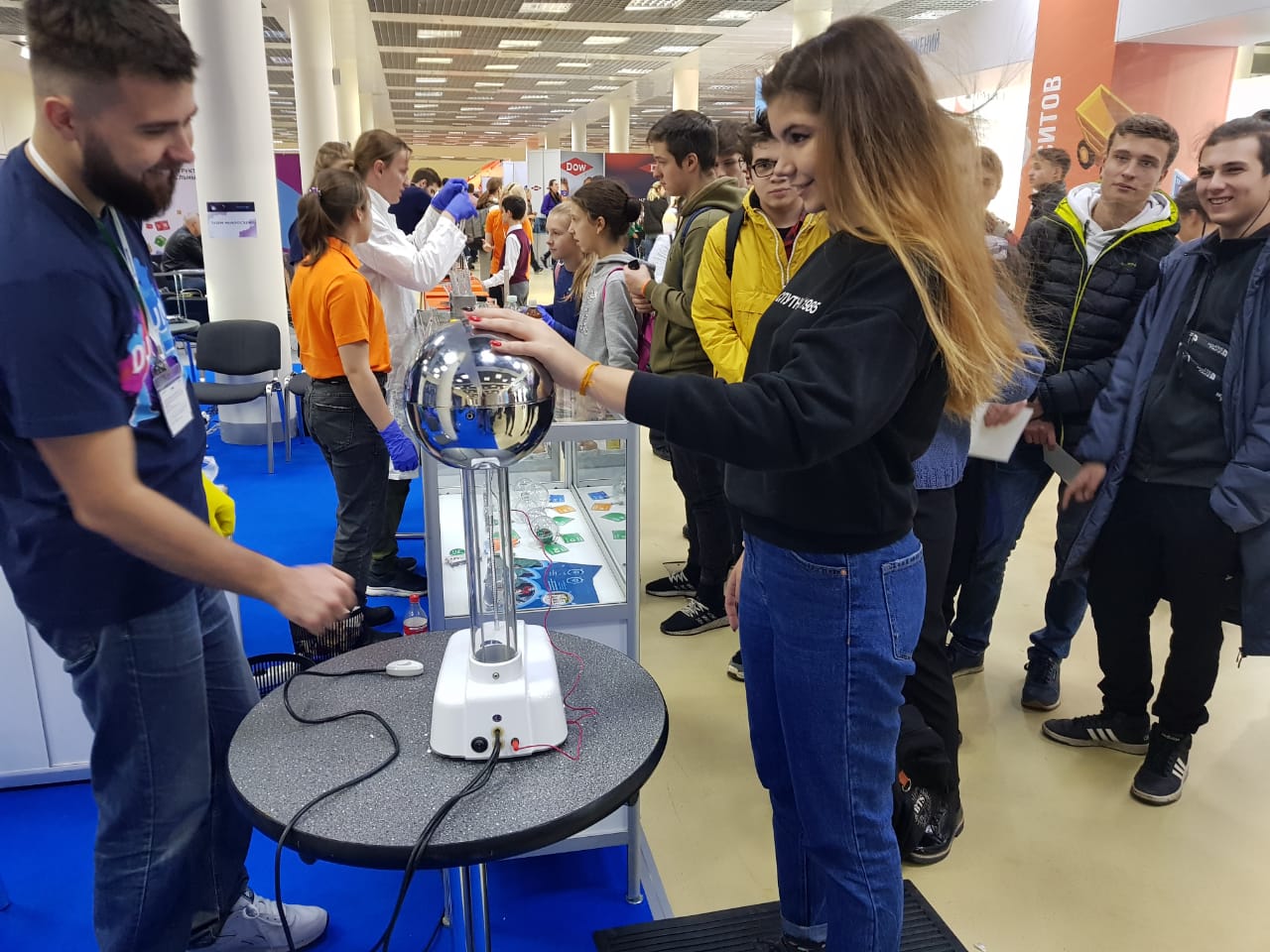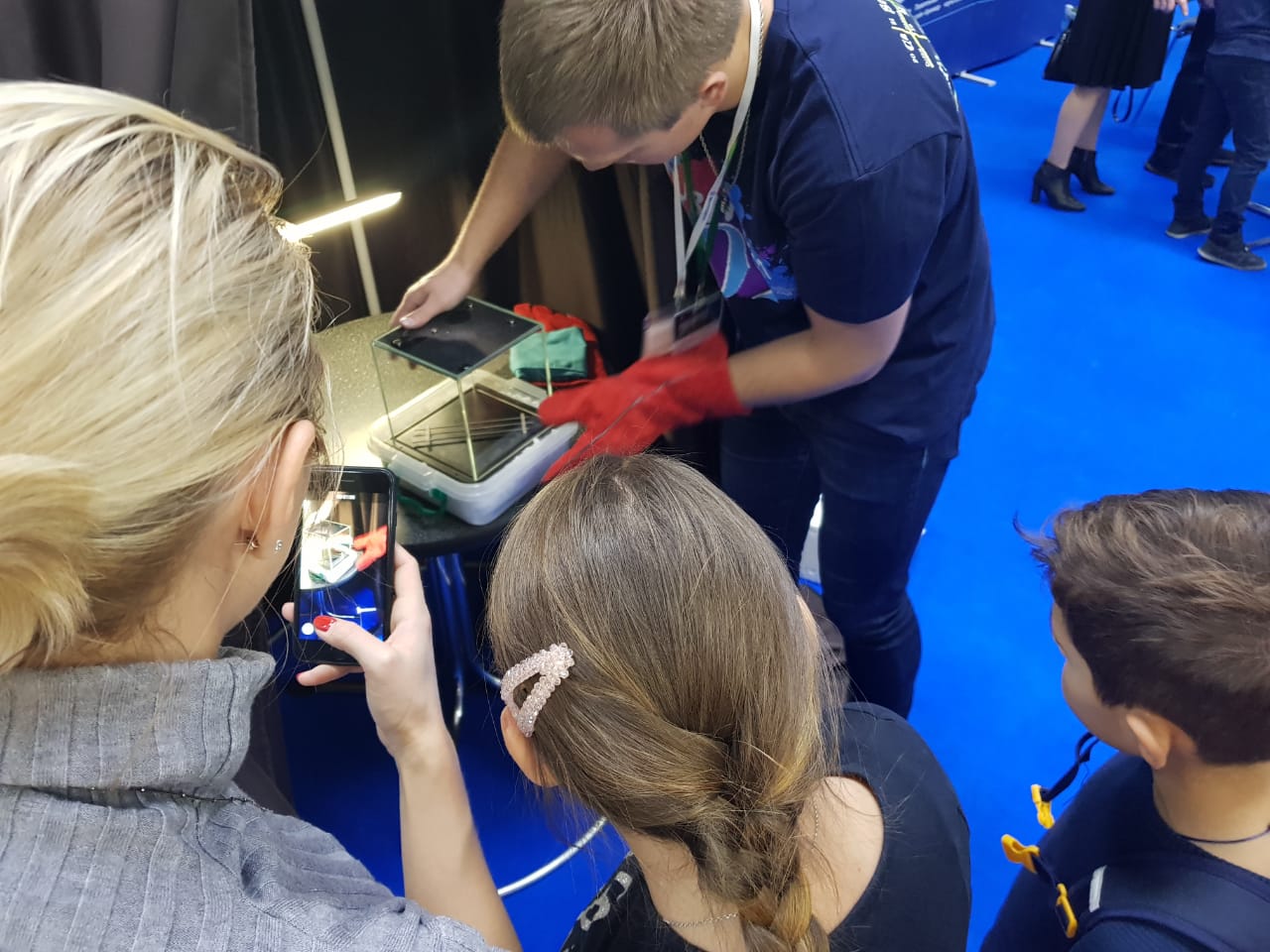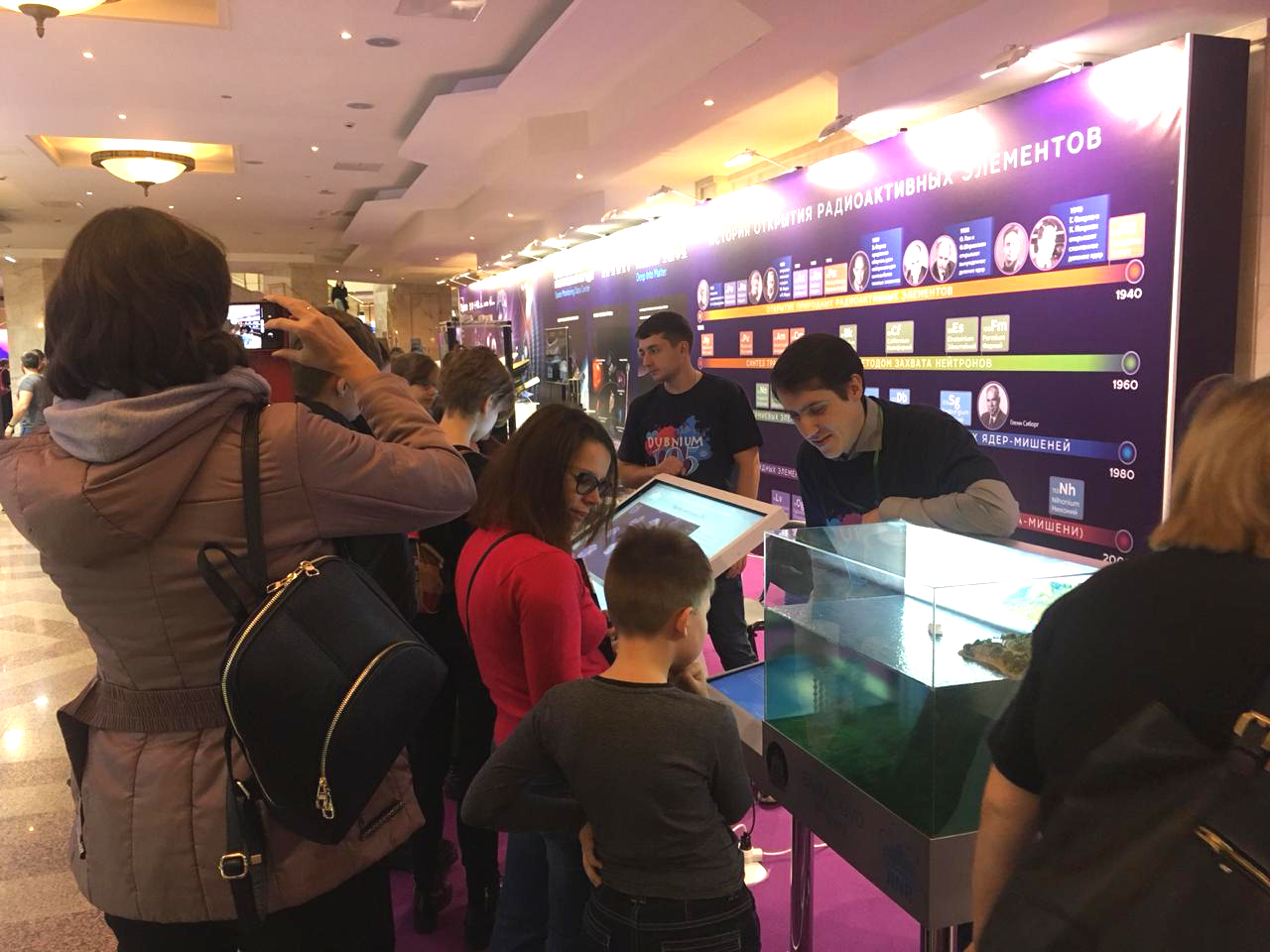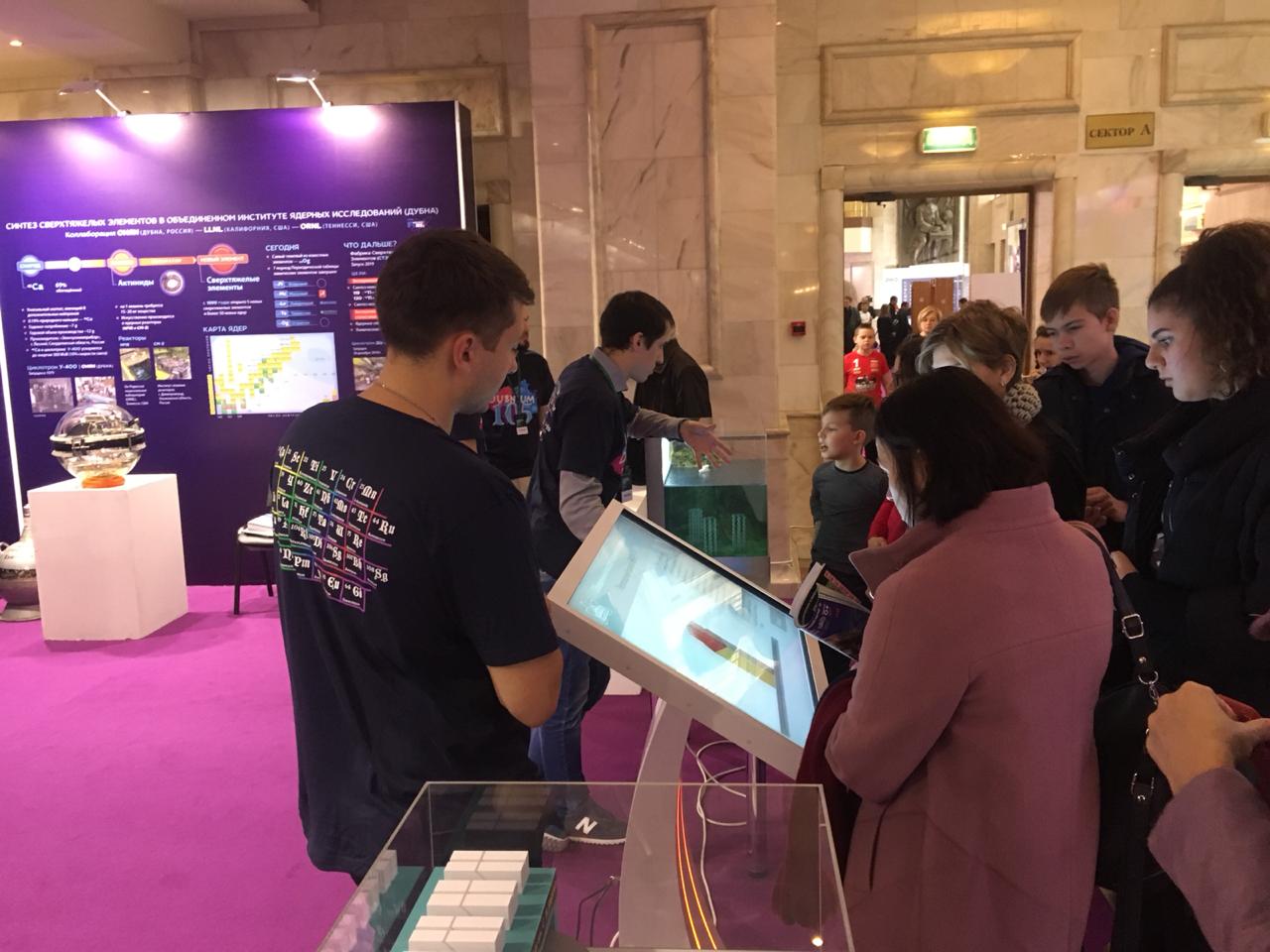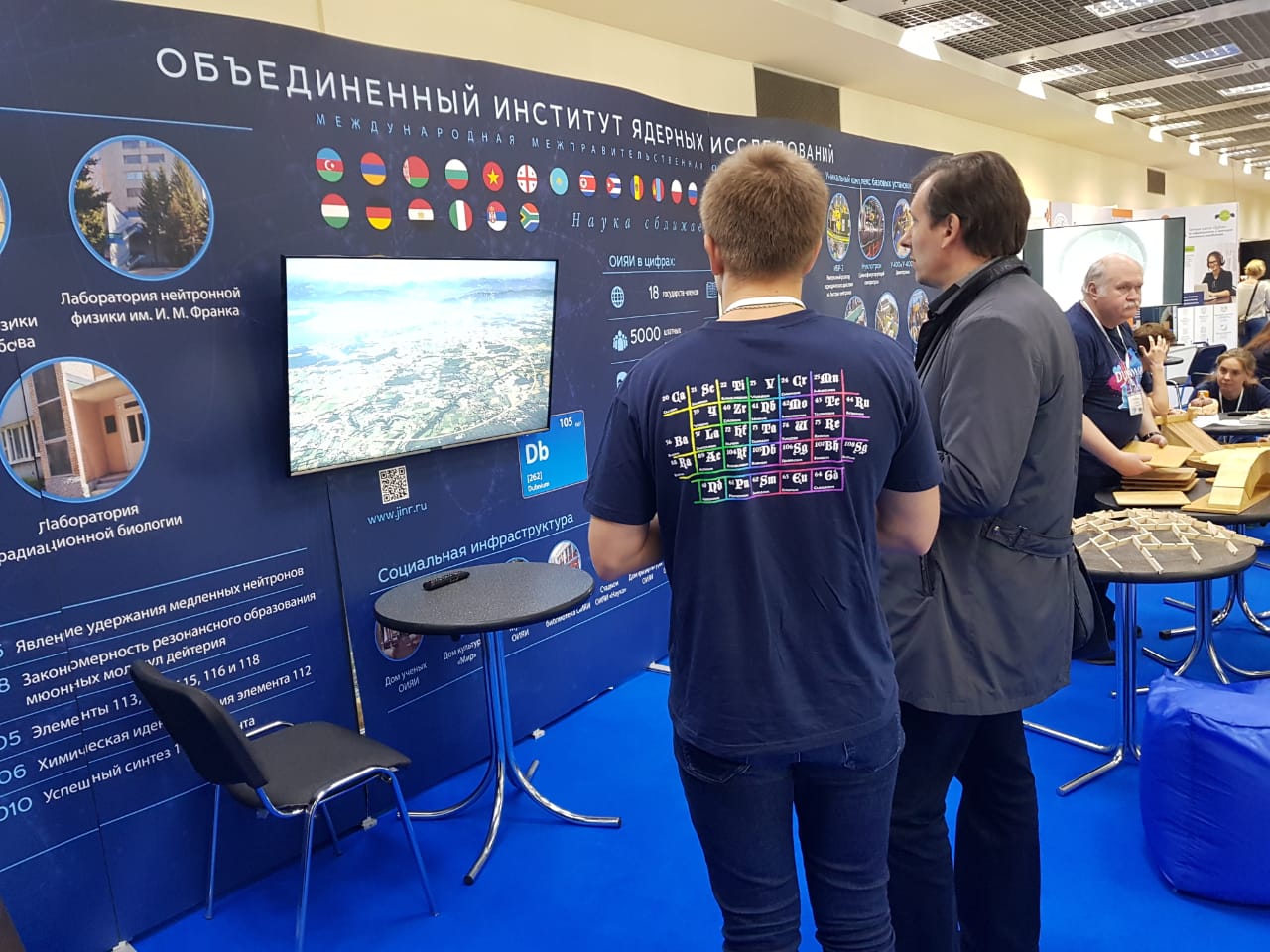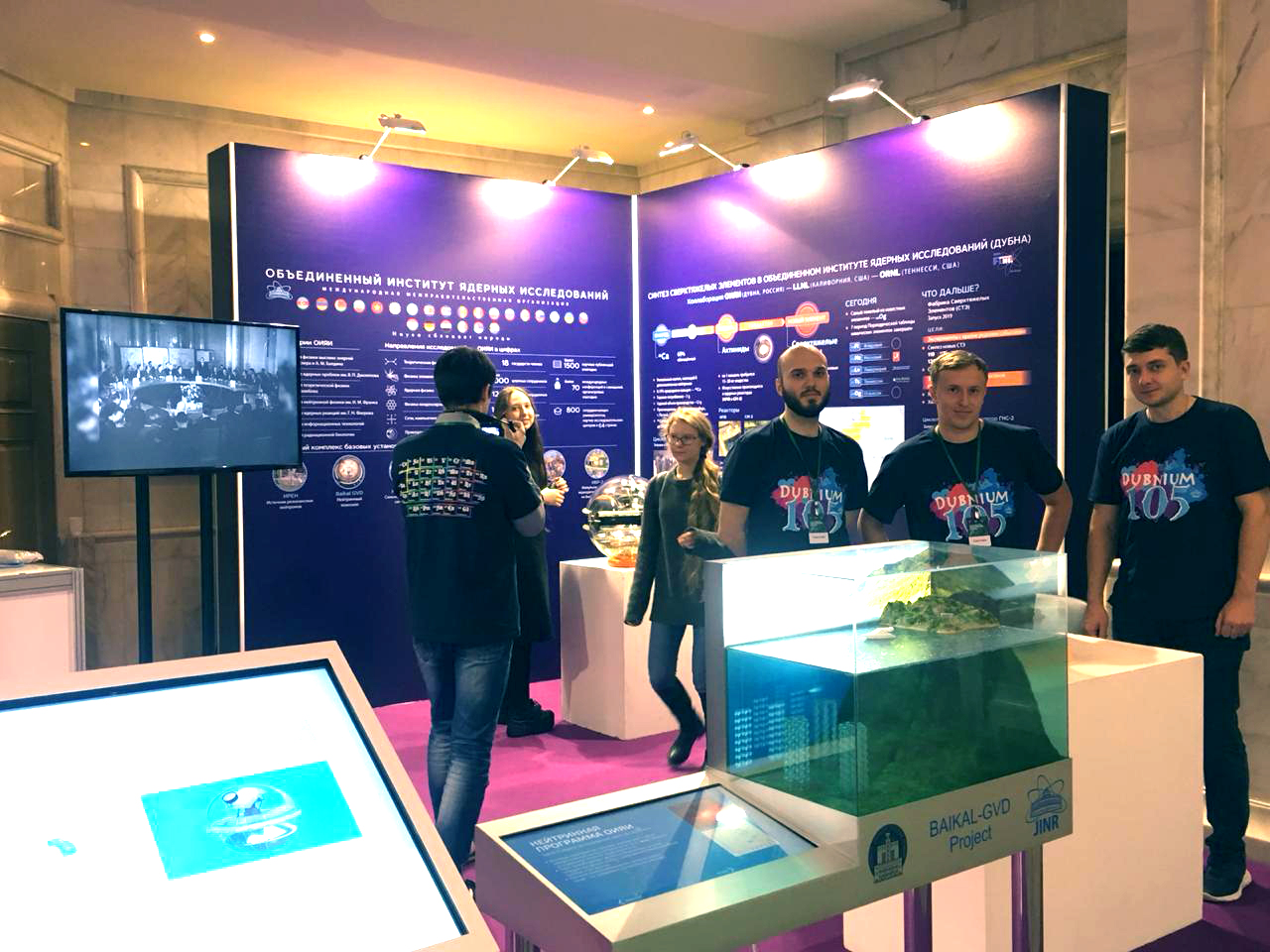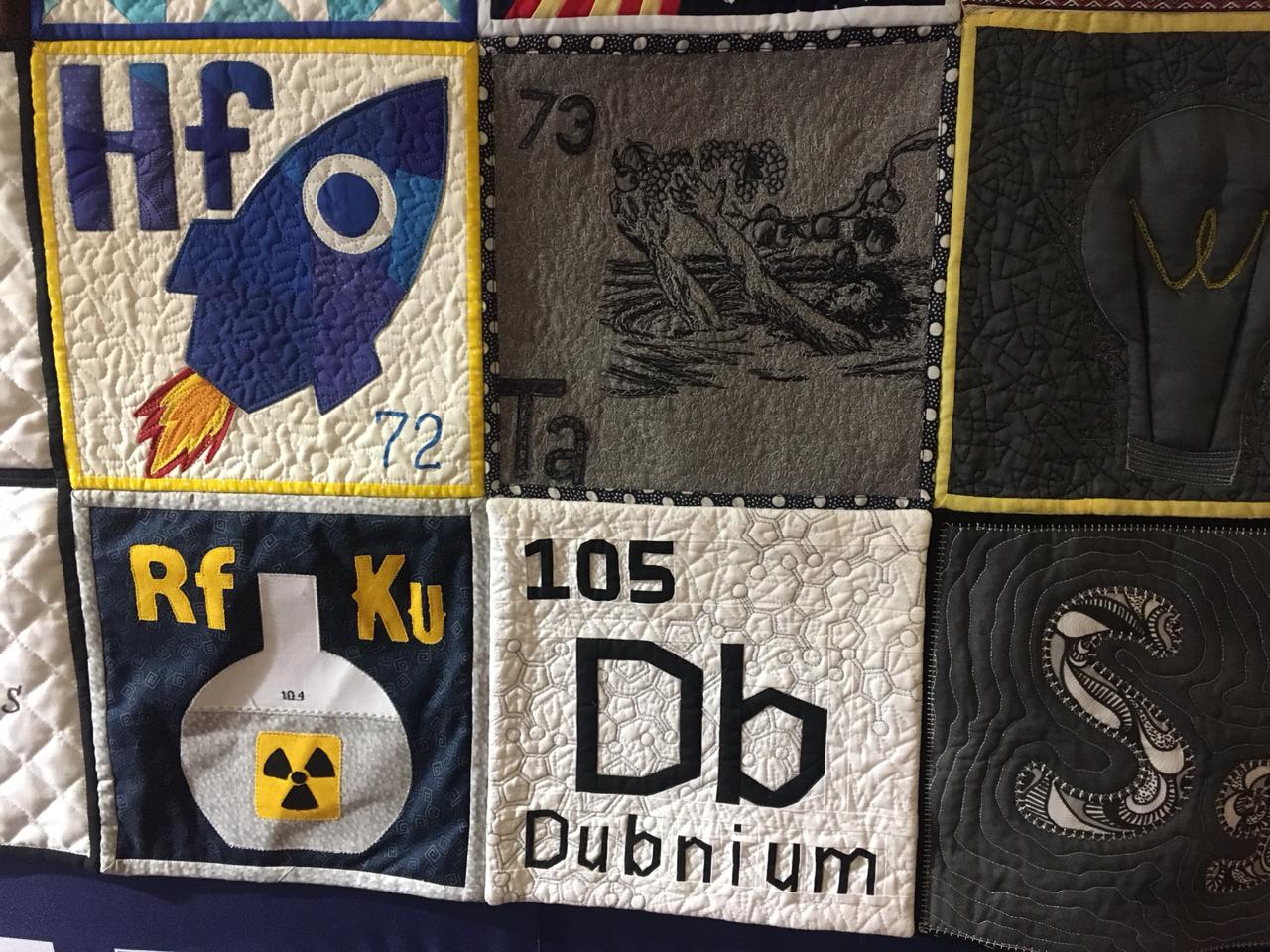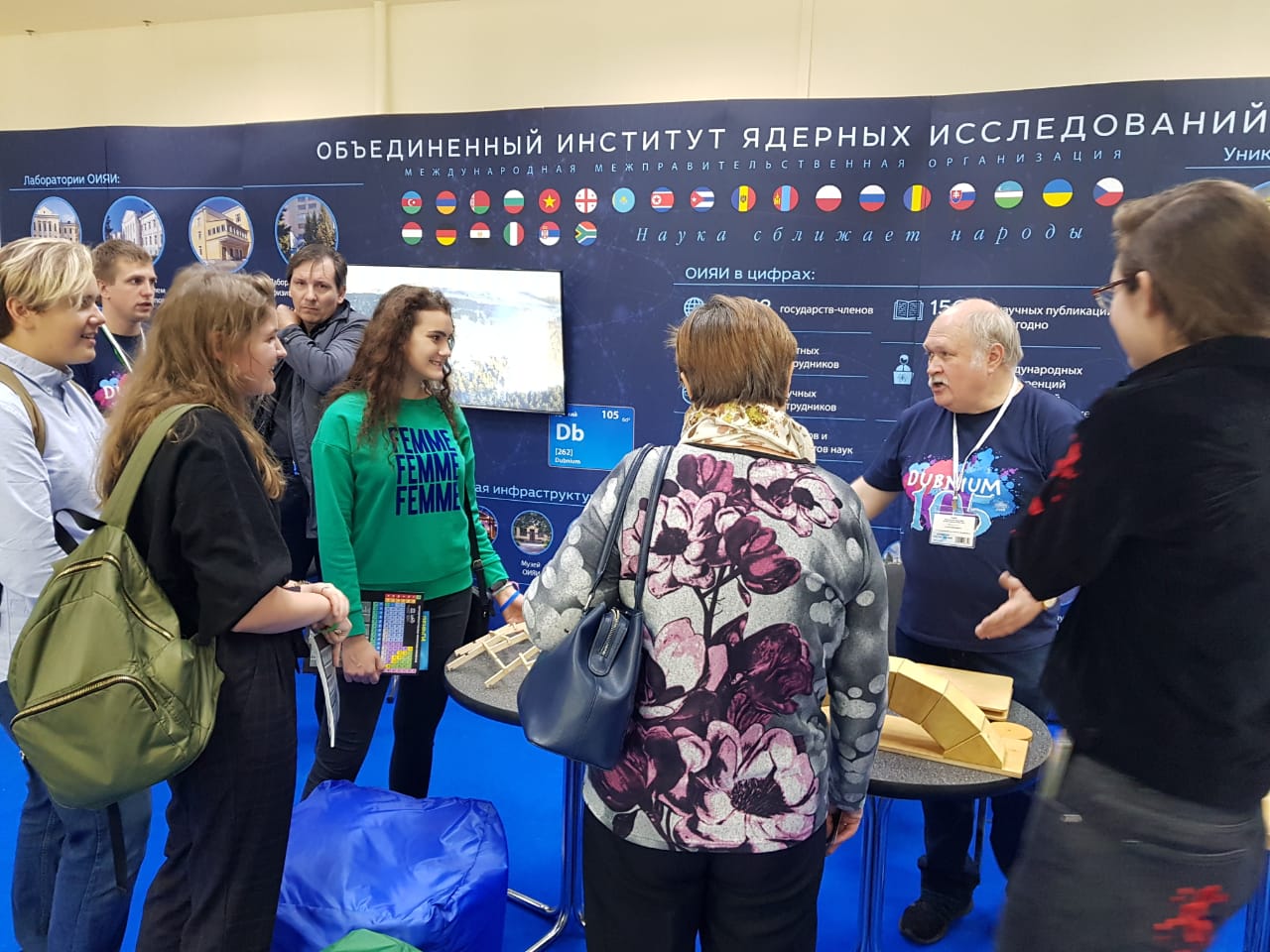JINR will traditionally take part in the Moscow Festival “NAUKA0+”
News, 11 October 2019
The largest science popularization event, the All-Russian Festival “NAUKA0+”, has started in Moscow today. The Joint Institute for Nuclear Research traditionally participates in the event for the fourth time. The Institute’s exhibition stands are opened for visitors from 11 to 13 October at two most prestigious platforms of the Festival, namely the MSU Fundamental Library and the Expocentre at Krasnaya Presnya str. The programme of the Festival includes the teleconference between the MSU and JINR.
The main topic of this year Festival is the Periodic Table of Chemical Elements as the commemoration of the 150th anniversary of the discovery of the periodic law of chemical elements made by a Russian prominent scientist Dmitry Mendeleev. The teleconference between the MSU and JINR on this topic will be organized in which staff members of the Flerov Laboratory of Nuclear Reactions, namely Scientific Secretary of the Laboratory A. V. Karpov, Head of the Group of Radioactive Beam Nuclei S. V. Mitrofanov and Head of the Group of Measuring Electronics A. A. Voinov, will take part.
Co-chairman of the organizing committee of the scientific festival, MSU Rector Academician Victor Sadovnichy mentioned the importance of discoveries made in FLNR JINR: “The All-Russian Festival of Science has a major theme for each year. This time, it is dedicated to the Mendeleev’s Table. I would like to remind you that the UN proclaimed 2019 the International Year of the Periodic Table of Chemical Elements. Festive events, exhibitions, conferences take place all around the world. This fact is of special significance to Russia as far as the Mendeleev’s Table is one of the greatest achievements of Russian science. We talk about not only discoveries of the 19th century but of modern times as well.”
Most of the activities of the Festival are devoted to chemistry. However, the adult audience, including students, will see other exhibition items in MSU.
Prototypes of operating and future JINR facilities are presented in the Fundamental Library:
- the U-400 cyclotron (FLNR JINR) at which new superheavy elements are synthesized,
- deep underwater neutrino telescope used in the Baikal experiment, as well as
- real optical module used in this experiment (DLNP JINR),
- the Medico-Technical Complex of DLNP JINR used for the treatment of oncology diseases by the proton therapy.
In the “Shuvalovsky” MSU building, Valery Shvetsov will deliver a lecture on the search for water on Mars using the neutron detector developed with the participation of the Laboratory of Neutron Physics JINR. Konstantin Vergel will tell how to assess the environmental situation in the Moscow Region using moss. Sergey Merts will report on colliders and the NICA accelerating complex, a large-scale project implemented in the Laboratory of High Energy Physics JINR.
There will be plenty of events for young science fans in the Expocentre. The popular science exhibition will be organized particularly at this site. One can and should come here with a whole family. The JINR site in the Expocentre is equipped with sub-sites:
- The Wilson chamber. Thanks to this invention, tracks of charged particles become visible. The discovery, for which its inventor got the Nobel Prize in physics in far 1927, still attracts surprised and admiring glances of the audience.
- The site of radiation physiology at which participants will tell about radiation sources on Earth and in space, radiation types and what may happen to the astronaut’s brain during the inter-planetary mission, whether the flight to Mars is possible or not. Guests and participants of the event will be able to carry out an autopsy of a plastic laboratory rodent and find the most important structures in the human brain.
- The experimentarium in which it is possible to interact with exhibited items: to study, construct, find out how physical laws work.
- Zone for experiment demonstrations: frozen flowers and fruit, ice balloons, coloured reactions, ice smoke, pouring of liquid nitrogen, fire on a hand and other physical and chemical experiments will be demonstrated to visitors.
Plenty of positive emotions and new knowledge in the fields of physics and other natural sciences are guaranteed!
In the conference hall of the Expocentre, JINR staff members will deliver popular science lectures for schoolchildren and adults: Konstantin Khramko will tell what the atmosphere may hide and how moss may help find it out. The lecture by Tatiana Khramko will be devoted to space radiobiology. The schedule of lectures is available on the website of the “NAUKA 0+” Festival.
During the Festival, from 11 to 13 October, more than 100 sites, including MSU, the Expocentre, “Zaryadye” park and the RAS Presidium, will work in Moscow. Organizers expect that about 100 million participants, from schoolchildren to outstanding scientists, will take part in the event. More details about the programmes of the sites can be found via the link. Admission to all the events of the Festival is free.
We invite all science fans to visit our exhibition stand and lectures from Friday to Sunday! On Saturday, from 2:00 to 3:00 PM, we are waiting for you to take part in the teleconference “MSU – the Laboratory of Nuclear Reactions JINR” in the frames of the Festival’s theme “Filling in the cells of the Mendeleev’s Table”.
Online broadcast of the MSU-JINR teleconference will be available on several channels:
